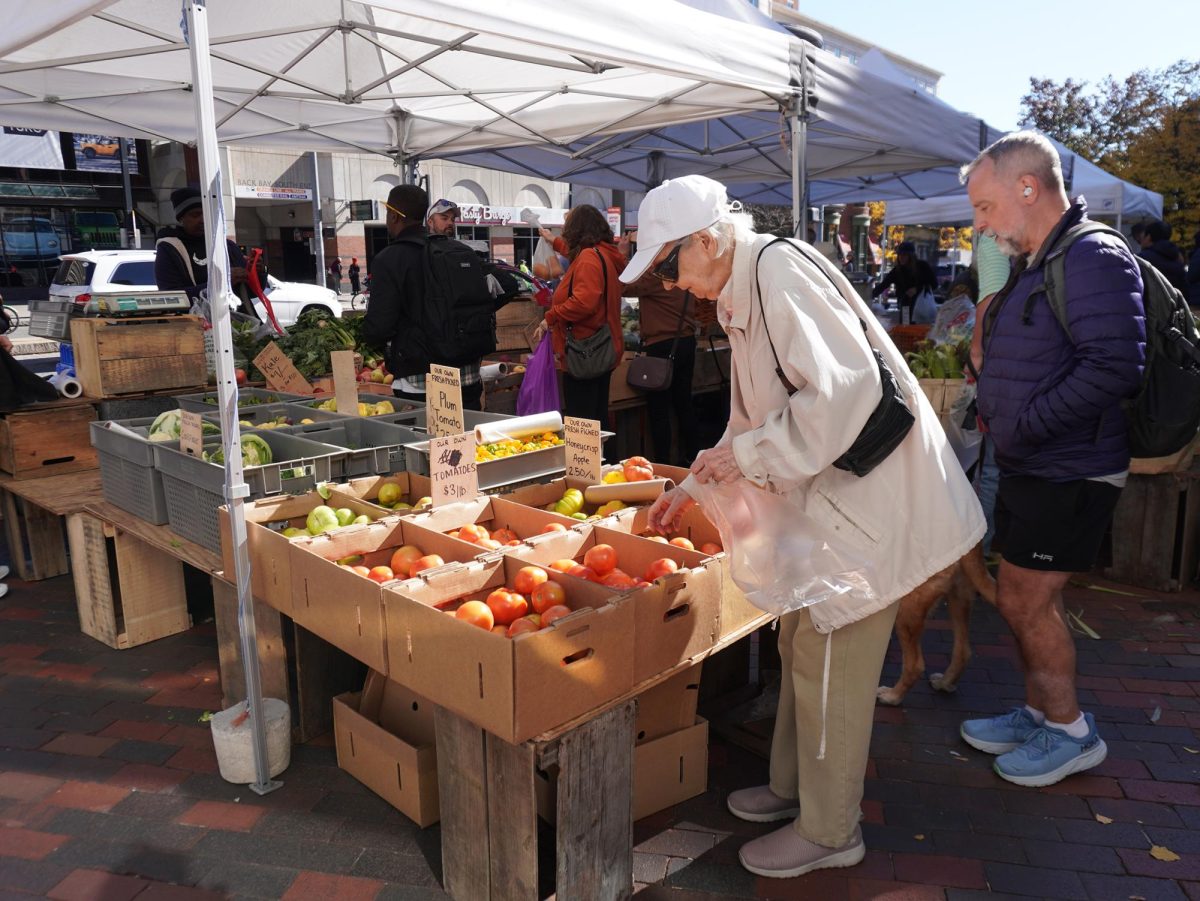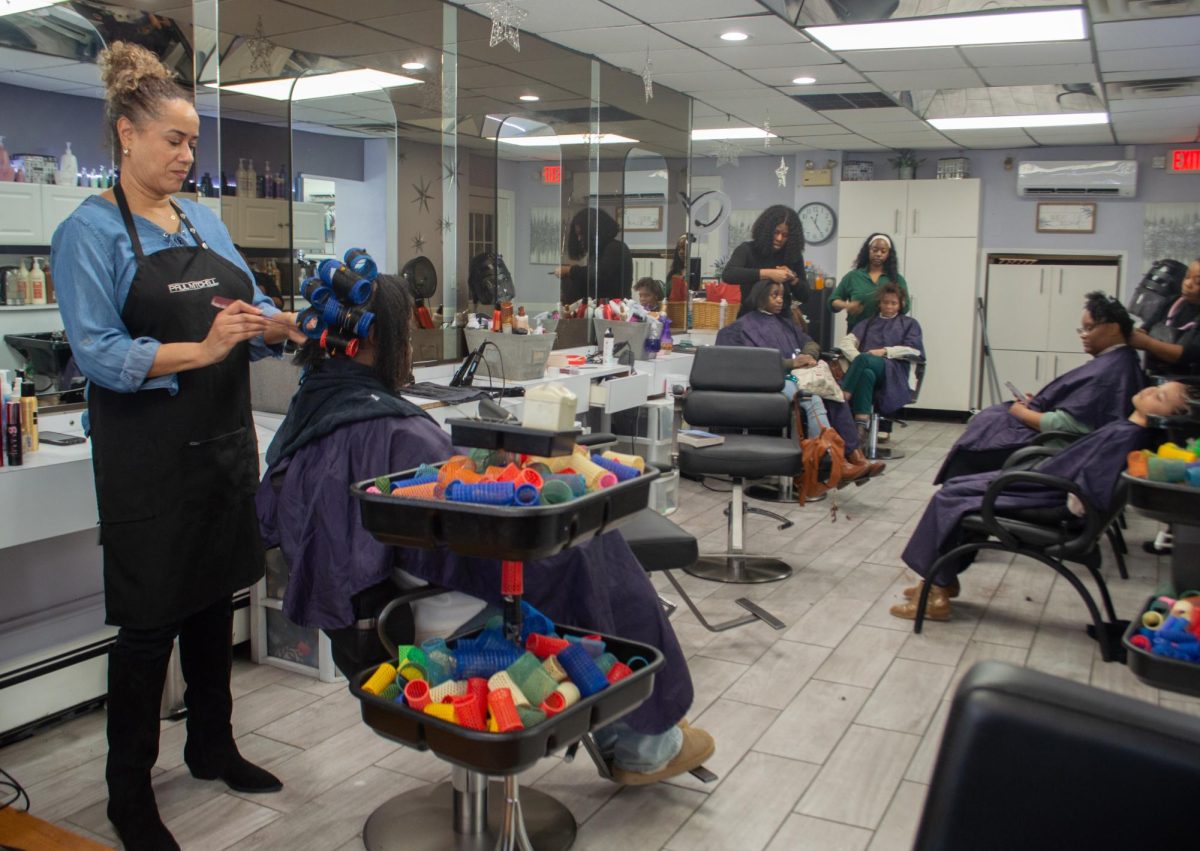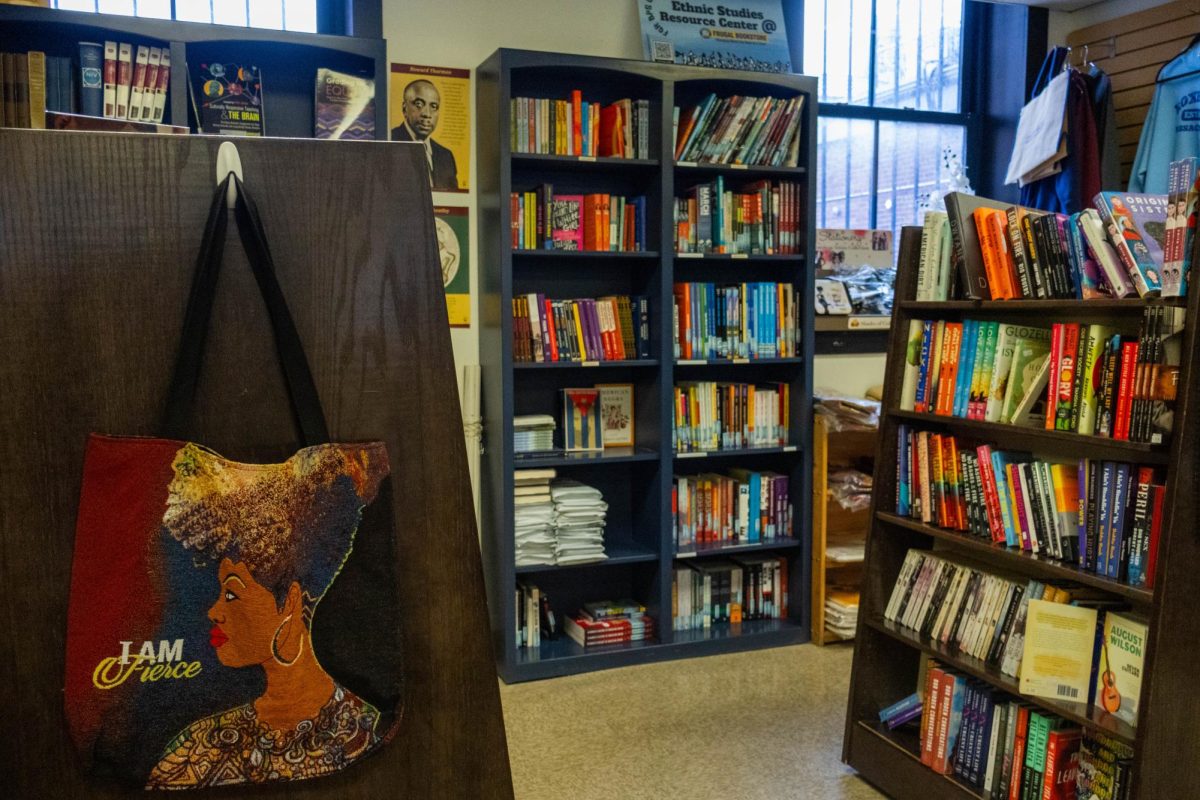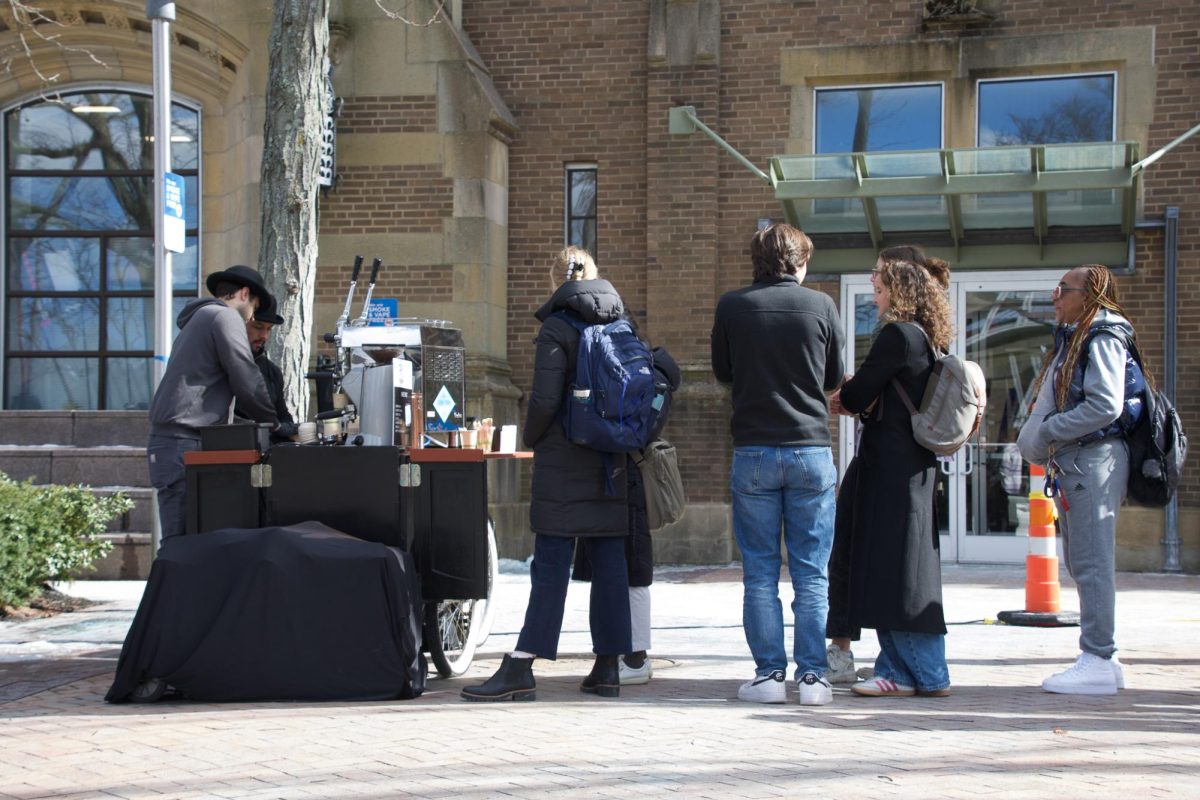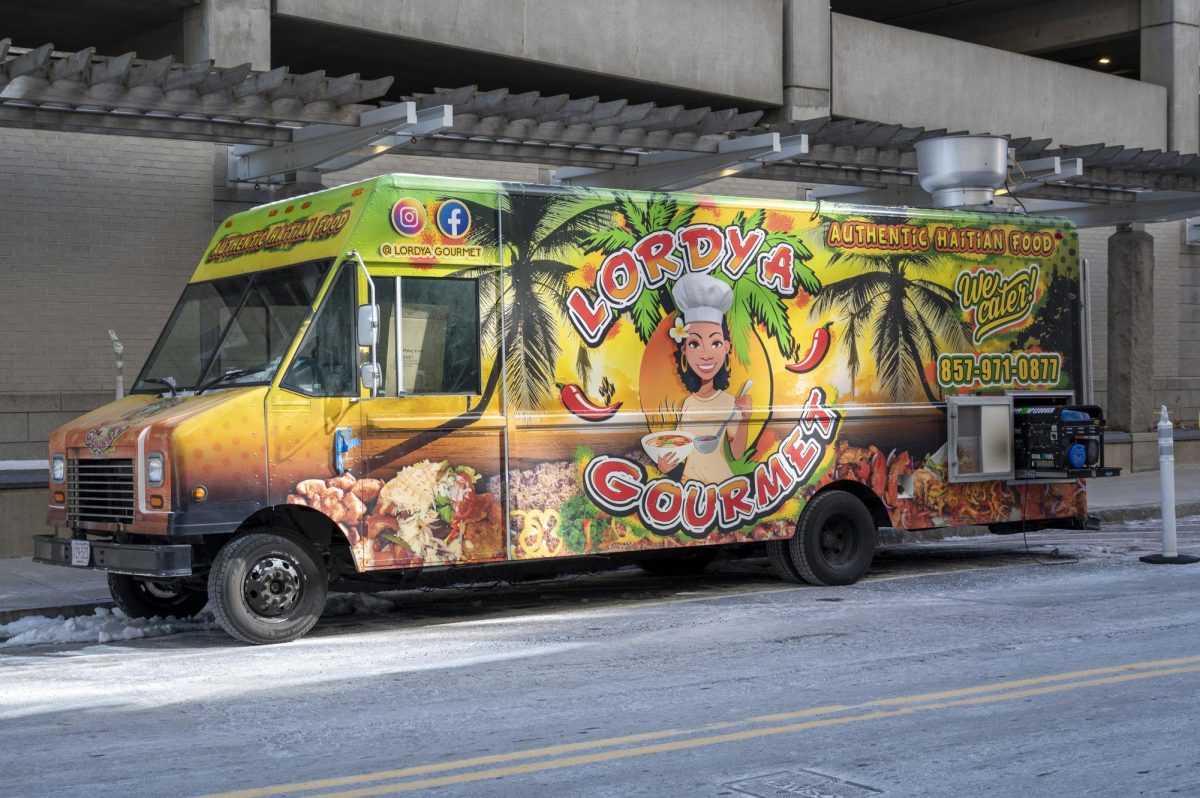In the heart of Back Bay sits the Copley Square Farmers Market, one of the largest farmers markets in Massachusetts. Dotted with pigeons, tourists and locals, it features farmers, artisans and other food producers. Despite gray skies on Tuesday, Oct. 8th, vegetables spilled out of baskets in bright bursts of color. Open Tuesdays and Fridays from 11 a.m. to 6 p.m., the market, tucked between busy streets, beckons customers to slow down and examine each tent. At one end of the block, steamy lentils and rice from an Indian food stall provide quick meals to-go. Honey and other bee products — candles, beeswax skincare and pollen — are displayed at the other.
Becca Handford, the lead market manager for Mass Farmers Markets, said the market offers more than just fresh produce.
“Sometimes we do chef demos,” Handford said. “Last year, Halloween fell on a Tuesday, so we had pumpkin painting and little trick-or-treat candies for kids.”
Originally located in Copley Square, the market moved across the street to the McKim Plaza outside of the Boston Public Library last year, due to Copley Square Park renovations. Becky Stillman of Stillman Farms, a vendor that has contributed to the Copley Square Farmers Market for over a decade, said she noticed this move has considerably weakened the market.
“As markets go, it’s here, but it’s not at the strength that it used to be,” Stillman said. “COVID took a huge hit on farms and farmers markets, in general. We were displaced — we used to be across the street — [and] that affected us.”
With a line forming in front of her tent, Stillman chatted with customers she has known for years. Stillman Farms does their own retail, she said. They do not sell at supermarkets. For her, farmers markets, although physically taxing, are worth it for the customers.
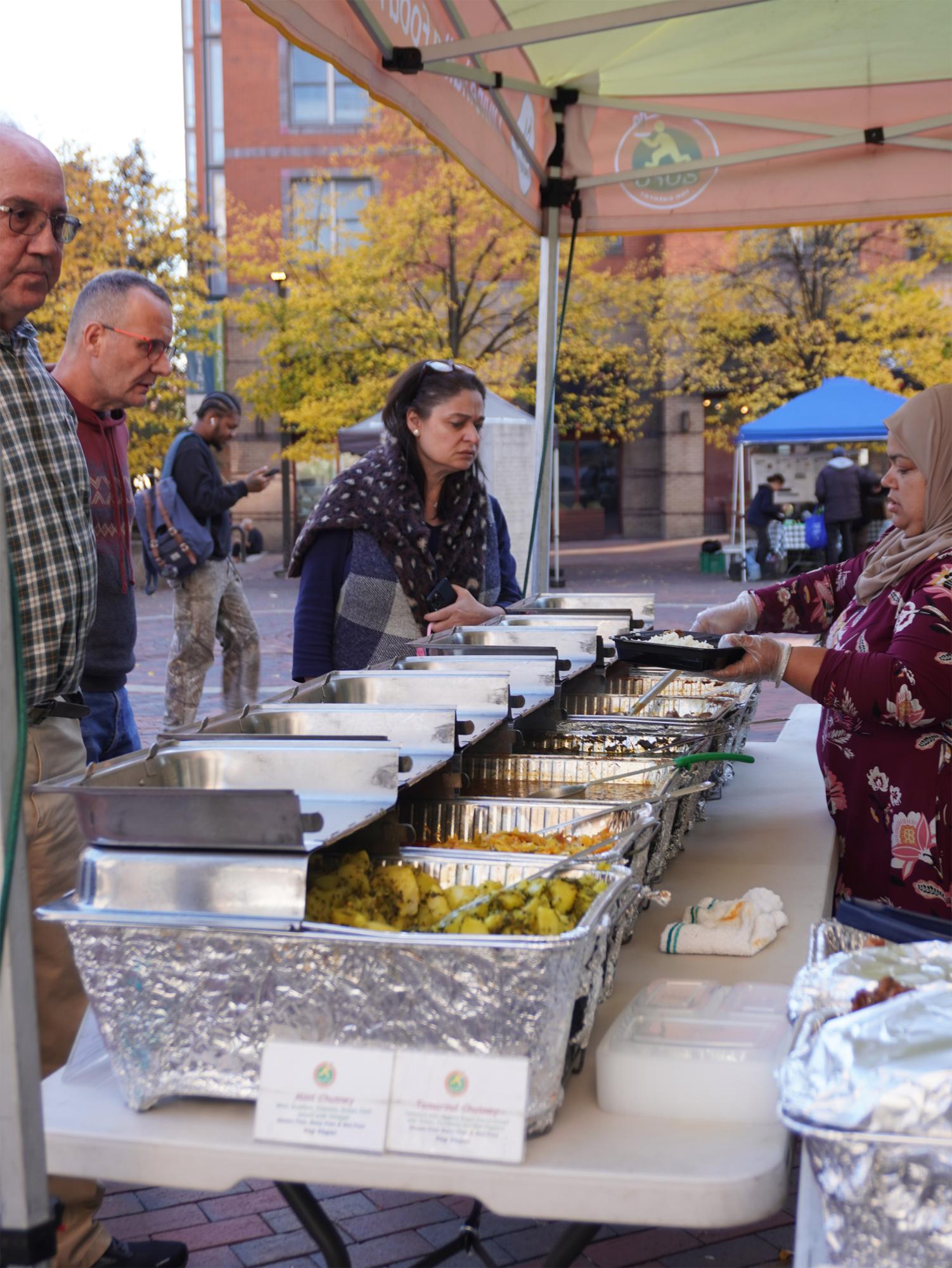
“You know just enough about them that you can personalize your sale with them and have a nice conversation. People who shop at farmers markets are very intuitive and very much aware of farming, what farming takes and being sustainable,” Stillman said. “So you can have some great conversations about what’s going on with your farm and all that. ”
Stillman Quality Meats, part of the larger Stillman Farms, sells an array of high-quality meat that they raise themselves.
“We are the only small animal producers that have their own on-site processing plant. Everybody else lets a slaughterhouse cut their meat up, package it, and send it back frozen,” Stillman said. This allows them to sell an assortment of meat products, from holiday turkeys to over 150 varieties of sausage.
A few tents down from Stillman is Kimball Fruit Farm, which started as a wholesale apple farm and has since expanded to include other produce and an on-site farm stand. This is its first year participating in the Copley Square Farmers Market, though it takes part in 10 other farmers markets a week.
“Traditionally, we haven’t done farmers markets where we can’t have our truck right here with overstock in the back. With this one, we have to be super creative about putting [stock] underneath [the tables],” said David Wadleigh, one of the owners of Kimball Fruit Farm. The effort is worthwhile, however, as he estimated around 80% of their income comes from farmers markets.
“We do 13 markets this year,” said Elsa Letteron, who works for Hi-Rise Bread Company, a family-owned bakery in Cambridge. Its tent is positioned squarely in front of the Boston Public Library and boasts a glass case of enticing pastries and loaves.
“This is not my favorite market, but the best part about all the markets we do are the people, especially the other vendors who work here, and for that reason I love it,” she said. With an abundance of tourists, many people are simply passing through and often do not come explicitly to buy items, Letteron said.
Greg Suplinskas, who co-owns Stoneside Flower Farm, a two-acre cut flower farm in Dartmouth, echoed this statement.
“Flowers are sometimes tricky for more of a walk-through market. There’s a lot of tourists here, and other people who might not be going straight home. So they can’t always take flowers with them,” he said. Suplinskas said he also knows several customers who come with the express intention of grocery shopping.
For vendors like Stillman and Wadleigh, the Copley Square Farmers Market offers more than just a place to sell their goods — it’s an opportunity to build lasting relationships with customers. Despite location challenges and a fluctuating number of visitors, it remains a valuable space for both locals and tourists. As farming continues to face post-pandemic difficulties, the market seems to have only become more important.
“Farmers markets are a tough life,” Stillman said. “They’re very draining. [We] are doing multiple farmers markets, probably six out of seven days of the week. It’s intense. You can get the products to them, but you have to get the customers to come out and support. But once you’re here and set up, being able to personally touch base with each and every one of the customers is really special.”



